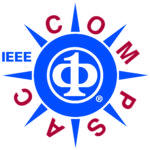AIML 2023: The 6th IEEE International Workshop on Advances in Artificial Intelligence & Machine Learning: Towards Sustainable AI and AI for Sustainability
Technical Program
*= in-person presentation in Torino
The EcoIndex metric, reviewed from the perspective of Data Science techniques*
Christophe Cérin, Denis Trystram and Tarek Menouer
An asynchronous federated learning focusing on updated models for decentralized systems with a practical framework*
Yusuke Kanamori, Yusuke Yamasaki, Shintaro Hosoai, Hiroshi Nakamura and Hideki Takase
Hybrid Intelligence for Stock Market Analysis and Prediction*
Yuet-Yu Chan, Ka Chun Tang, Ka Kiu Mok, Henry C. B. Chan and Sing Hing Kenny Tang
New Problems in Active Sampling for Mobile Robotic Online Learning
Xiuxian Guan, Junming Wang, Zekai Sun, Zongyuan Zhang, Tianyang Duan, Shengliang Deng, Fangming Liu and Heming Cui
Measuring Bias in AI Models with Application to Face Biometrics: An Statistical Approach
Daniel DeAlcala, Ignacio Serna, Aythami Morales, Julian Fierrez and Javier Ortega-Garcia
On the Effectiveness of Features for Predicting User Churn in Reddit Communities*
Masayoshi Matsumoto and Sho Tsugawa
Gait Recognition using Deep Residual Networks and Conditional Generative Adversarial Networks
Entesar Talal, Zakariya Oraibi and Ali Wali
Integrating Multiple Visual Attention Mechanisms in Deep Neural Networks
Fernando Martinez and Yijun Zhao
Toward a Method Engineering Framework for Project Management and Machine Learning
Murat Pasa Uysal
Social Media, Market Sentiment and Meme Stocks
Yijun Zhao, Zefan Du, Shengjian Xu, Yu Cheng, Jiachen Mu and Michael Ning
Dealing with Explainability Requirements for Machine Learning Systems
Tong Li and Lu Han
Has the Social Robot Been Hacked? An Emotion Detection System with Distance-Range Parameters for Feature Selection
Subhash Rajapaksha Pathiranage and Debbie Perouli
An Assessment of ML-based Sentiment Analysis for Intelligent Web Filtering
Panayiotis Panayiotou and Nearchos Paspallis
A Comparative Analysis of Graph Neural Networks for Fake News Detection*
Ahmed Harby and Farhana Zulkernine
Linking Team-level and Organization-level Governance in MLOps through XAI and RAI Connector*
Elie Neghawi, Jun Huang, Zerui Wang and Yan Liu
DP-HFL:Heterogeneous Federated Learning Based on Differential Privacy
Yulei Meng and Xuebin Ma
Measurement of Illegal Android Gambling App Ecosystem From Joint Promotion Perspective
Yadi Han, Shanshan Wang, Yiwen Li, Xueyang Cao, Limei Huang and Zhenxiang Chen
Goals of the Workshop
The goal of the workshop, the sixth in the series at COMPSAC, is to foster interaction and information exchange among AI researchers and practitioners from academia and industry on safe, reliable and trustworthy real-world applications of AI and Machine learning (ML), . The workshop aims at: presenting a variety of novel AI/ML applications, case studies, and validation of AI technologies; examining risks and concerns of AI and ML; outlining practical challenges in formulating and implementing an AI strategy discussing ‘AI for Good’ initiatives; addressing topics such as eXplainable AI, algorithmic fairness, trust and reliability; and discussing challenges related to safe and robust deployment of AI; AI on a chip; new generation AI/ML models; sustainable AI; AI for sustainability; testing/validation and certification.
Workshop Theme
AI is now more pervasive than ever, influencing all aspects of our work and life. And AI is advancing from narrow AI towards Artificial General Intelligence (AGI) bringing in new and enhanced capabilities. Several efforts are underway towards harnessing AI along multiple dimensions such as smart handling of large data, realization of novel algorithms and new models of computing, and supporting several socio and economic initiatives. These efforts would lead to building better and more sustainable AI models addressing sustainability in the entire lifecycle of AI. AI has the potential to not only make our lives better but also help better manage our planet. AI can also assist us in realizing the United Nations’ Sustainable Development Goals (SDGs). This year’s workshop theme is aligned with the conference theme, Resilient Computing and Computing for Resilient in Sustainable Cyber-physical world. The Workshop will cover AI research and practice and socio-technical challenges facing the adoption of AI,, outline the status of AI in practice, and examine AI’s unrealized potential.
Scope of the Workshop
This workshop will facilitate much-needed interaction and information exchange among AI researchers, practitioners, and business executives. It will provide an interactive forum for discussion on recent and emerging developments, key issues and challenges, and practices related to AI applications. It will also serve as a platform to present case studies and discuss application experience as well as to demonstrate applications and software tools. Researchers and practitioners from all over the world from academia, industry and government are invited to present their work and perspectives and participate in the workshop.
Topics of interest include, but are not limited to:
- Advances in AI, ML, deep learning, cognitive computing, intelligent agent, and chatbot
- AI strategy for business and industry
- AI applications in industry, business, healthcare, and education and training
- AI in government
- AI for social good
- AI in legal practice, and legal aspects of AI (liability, etc)
- AI for enhancing information security and privacy
- Work and life in the AI age
- Trust, resilience, privacy, and security concerns in AI applications
- Testing and validation of AI and ML applications
- Risks, limitations, and challenges of AI and ML
- Legal, regulatory, and ethical aspects of AI
- AI: promise vs practice
- Societal implications of the rise of AI
- AI and blockchain
- Human-centered AI
- Explainable AI
- Responsible AI
- Trustworthy AI
- Human-machine co-existence and collaboration
- Intelligent, autonomous robots and cars
- Industry 4.0
- Smart society
- AI and IoT
- Adversarial ML & Deep Fakes
- Secure AI models
- Scalability of ML models
- Lightweight ML models / ML for edge devices
- Quantum ML
- AI for realizing the UN Sustainable Development Goals
- Case studies, experience reports, lessons learned
- Overview of AI activities in a region/country
- The Future of AI
Paper Templates
IEEE Paper templates are available in MS Word 2003 and LaTex. All submissions must use US 8.5×11 letter page format.
Important Dates
Main Conference/Symposium
Main conference/symposium papers due: 15 January 2023Extended to 15 February 2023
Notification: 7 April 2023
Camera-ready and registration due: 7 May 2023 Updated: 18 May 2023
Journal then Conference Submissions
Due date: April 7, 2023
Notifications: April 30, 2023
Workshops, Fast Abstract, SRS Programs
EXTENDED: Workshop papers due: 21 April 2023
UPDATED: Notifications: 7 May 2023
UPDATED: Camera-ready and registration due: Updated: 18 May 2023
Submission Link
Please submit your paper on EasyChair
IEEE Conference Publishing Policies
All submissions must adhere to IEEE Conference Publishing Policies.
IEEE Cross Check
All submission will be screened for plagiarized material through the IEEE Cross Check portal.
Workshop Organizers
Aswani Kumar Cherukuri
Vellore Institute of Technology, India
Email: cherukuri@acm.org
San Murugesan
BRITE Professonal Services, Australia
Email: san1@internode.net
Program Committee
Antonio Vetrò, Politecnico di Torino, Italy
Arghya Kusum Das, University of Alaska, USA
Ashraf Elnagar, University of Sharjah, Arab Emirates.
Darshika G. Perera, University of Colorado, USA
Debasis Ganguly, University of Glasgow, United Kingdom
Firuz Kamalov, Canadian University Dubai, UAE
Gang Li, Deakin University, Australia
Gianfranco Politano, Politecnico di Torino, Italy
Ivan Donadello, Libera Università di Bolzano, Italy
Jan Hidders, Birkbeck University of London, United Kingdom.
Jinhai Li, Kunming University of Science and Technology, China.
Juan A. Álvarez-García, University of Seville, Spain
Kenichi Yoshida, Tsukuba University, Japan
Kozo Ohara, Aoyama Gakuin University, Japan
Lia Morra, Politecnico di Torino, Italy
Luigi Troiano, University of Salerno, Italy
Maria R. Lee, Shih Chien University, Taiwan.
Masaki Nagahara, University of Kitakyushu, Japan.
Michael Eiden, Arthur D Little, UK
Min Xu, Carnegie Mellon University, USA
Mohan K. Bavirisetty, CISCO, USA
Mufti Mahmud, Nottingham Trent University, United Kingdom
Muhammad Naveed Aman, University of Nebraska-Lincoln, USA.
Nelishia Pillay, University of Pretoria, South Africa.
Paula Brito, Universidade do Porto, Portugal
Praveen Kumar Donta, Vienna University of Technology, Austria
Sambit Bakshi, NIT Rourkela, India
Santosh Kumar Ray, Khawarizmi International College, UAE
Saqib Hakak, University of New Brunswick, Canada
Sarath Chandra Janga, Indiana University Purdue University, USA.
Shalini Kurapati, Clearbox AI, Italy
Shaoshan Liu, PerceptIn, USA
Silvia Delsanto, Jato Dynamics, Italy
Sriram Chellappan, University of South Florida, USA
Sydney Kasongo, Stellenbosch University, South Africa
Tad Gonsalves, Sophia University, Japan
Tania Cerquitelli, Politecnico di Torino, Italy
Tran Duc Tan, Phenikaa University, Vietnam
Uttam Ghosh, Vanderbilt University, USA
Vijayalakshmi Saravanan, University of South Dakota, USA
Voliansky Roman, National Technical University, Ukraine
Xiaolong Zheng, Institute of Automation Chinese Academy of Sciences, China
Yulei Wu, University of Exeter, United Kingdom.
Yunji Liang, Northwestern Polytechnical University, P.R.China
Yuriy Dyachenko, Ukranian National University, Ukraine

